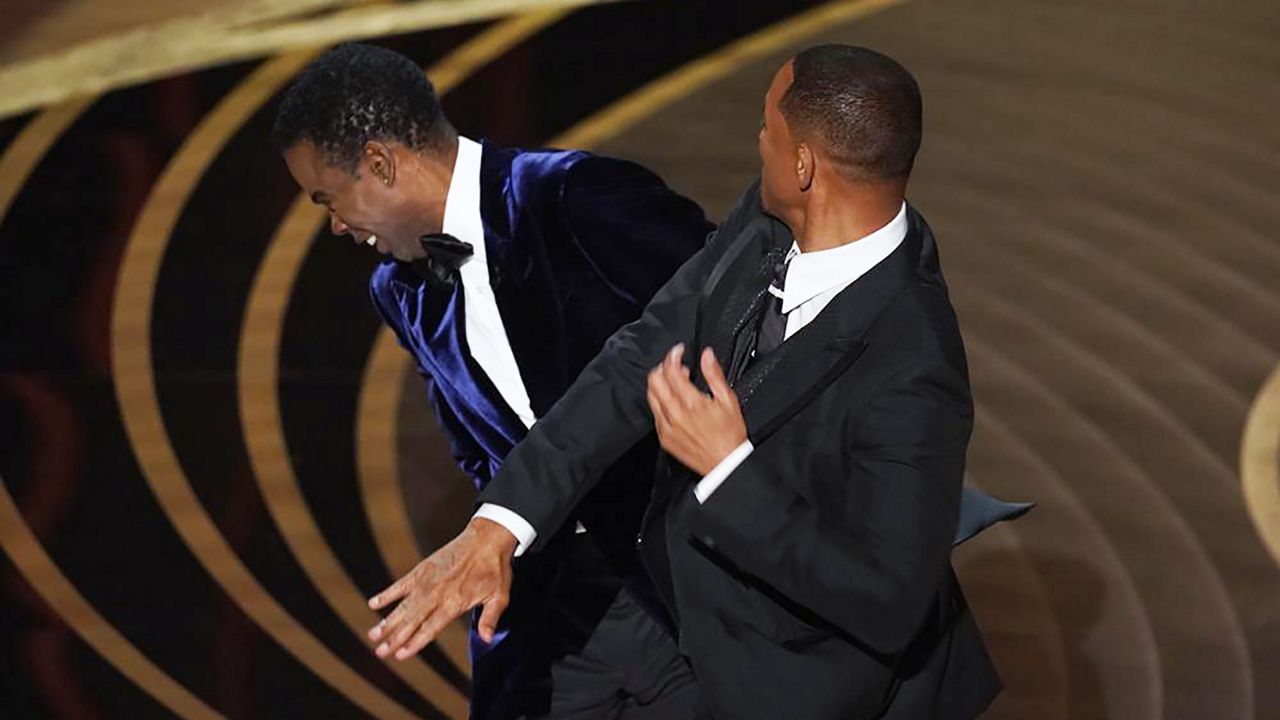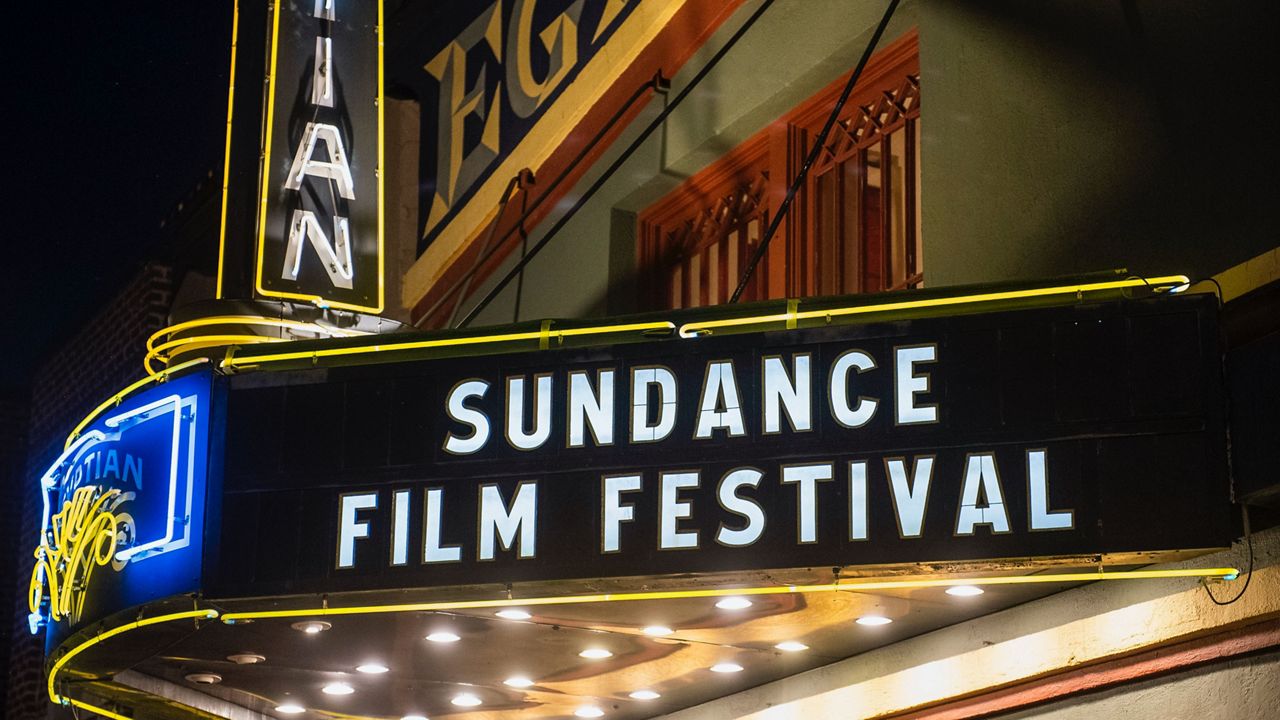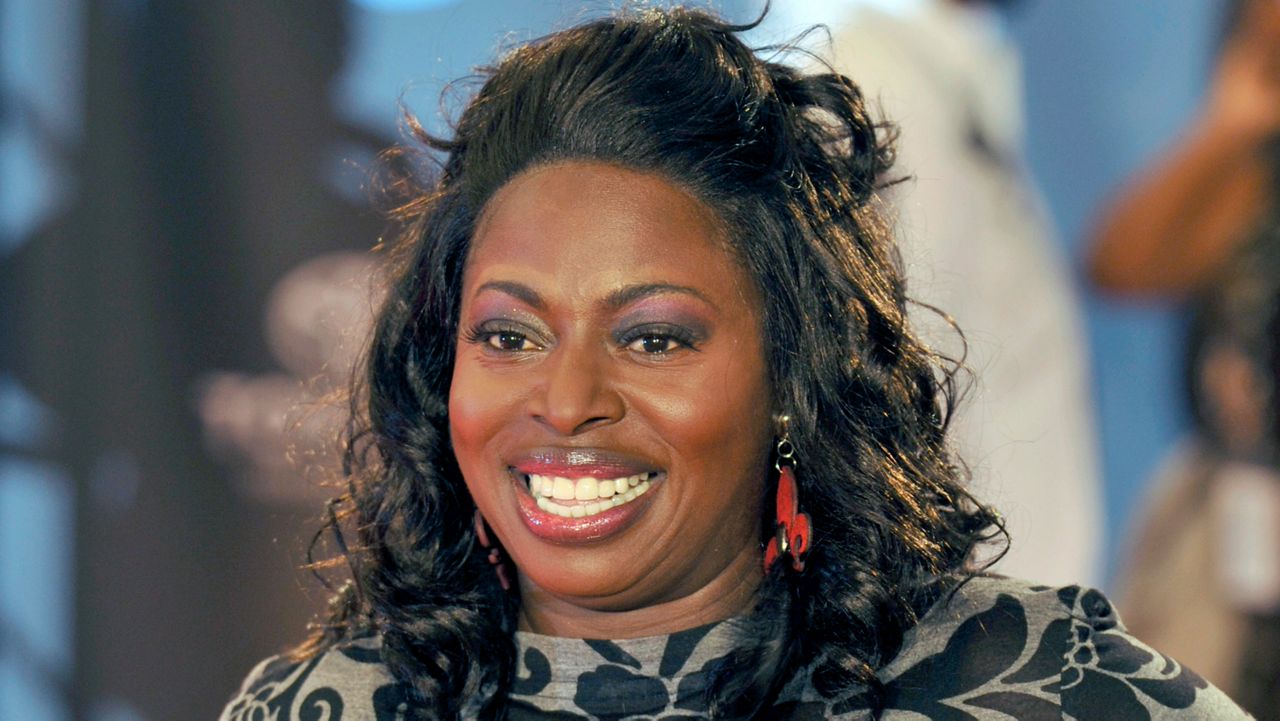Will Smith’s slap seen ’round the world at the Oscars was clearly a crime, legal experts say, but the chances of prosecution are slim and even if convicted he’d likely face little more than a slap of his own — on the wrist.
Smith left millions of witnesses stunned Sunday when he marched onto the stage of the Dolby Theatre and smacked Chris Rock in the face after the comedian made a joke about his wife, Jada Pinkett Smith, who was sitting with the actor in the front row.
What You Need To Know
- Actor Will Smith took to the Academy Awards stage on Sunday night to smack comedian Chris Rock after he made a joke aimed at Smith's wife, Jada Pinkett Smith
- Smith strode on stage and slapped Rock across the face; back in his seat, Smith twice shouted for Rock to "get my wife's name out your f****** mouth"
- The Academy of Motion Pictures Arts and Sciences on Monday condemned Smith's actions and said it will launch a formal review of the altercation, including exploring "further action and consequences"
- Shortly after the Academy's announcement Monday, Smith took to Instagram to apologize to Rock, writing in part: "I was out of line and I was wrong"
The Academy of Motion Pictures Arts and Sciences says it condemns the actions of Will Smith during Sunday night's Oscars and it will launch a formal review of his slapping of presenter Chris Rock.
Shortly after the Academy's announcement Monday, Smith took to Instagram to apologize to Rock, writing in part: "I was out of line and I was wrong."
"Violence in all of its forms is poisonous and destructive," Smith wrote on Instagram. "My behavior at last night’s Academy Awards was unacceptable and inexcusable. Jokes at my expense are a part of the job, but a joke about Jada’s medical condition was too much for me to bear and I reacted emotionally."
"I would like to publicly apologize to you, Chris," he continued. "I was out of line and I was wrong. I am embarrassed and my actions were not indicative of the man I want to be. There is no place for violence in a world of love and kindness."
"I would also like to apologize to the Academy, the producers of the show, all the attendees and everyone watching around the world. I would like to apologize to the Williams Family and my King Richard Family."
"I deeply regret that my behavior has stained what has been an otherwise gorgeous journey for all of us," adding: "I am a work in progress."
In a statement Monday, the film academy said it will also "explore further action and consequences in accordance with our Bylaws, Standards of Conduct and California law."
Smith stunned the Dolby Theatre crowd and viewers at home when he took the stage during Rock's remarks after the comedian made a joke about Jada Pinkett Smith, Smith's wife. Rock turned to Jada Pinkett Smith, Smith's wife, and said, "Jada, I love you. 'G.I. Jane 2,' can't wait to see it." Many laughed at the joke, including Will Smith.
The joke touched a nerve. Pinkett Smith, whose head is shaved, has spoken publicly about her alopecia diagnosis.
Rock has also previously joked about her: The comedian hosted the 2016 Oscars, when some were boycotting the ceremony over the #OscarsSoWhite group of nominees, including the Smiths. Rock said: "Jada boycotting the Oscars is like me boycotting Rihanna's panties. I wasn't invited."
Smith strode on stage and slapped Rock across the face. Back in his seat, Smith twice shouted for Rock to "get my wife's name out your f****** mouth." His words echoed clearly throughout the Dolby, though ABC cut the audio for about 15 seconds. Within an hour, Smith won best actor. During his acceptance speech, Smith apologized to the academy.
After the show Sunday night, the academy posted a statement condemning violence. Some academy members, like writer-producer Marshall Herskovitz, called for the academy to take disciplinary action against Smith.
"He disgraced our entire community tonight," wrote Herskovitz on Twitter.
Whoopi Goldberg, a member of the Academy's board of governors, said Monday on "The View": "We're not going to take that Oscar from him. There will be consequences, I'm sure."
The Los Angeles Police Department has said it was aware of the incident but was not investigating because Rock declined to file a police report.
While police could technically open an investigation based on the Academy Awards broadcast, they wouldn't do so without Rock’s participation, said defense lawyer Alan Jackson, a former Los Angeles County prosecutor who oversaw high-profile cases.
“Would they ever in a practical world do that when Chris Rock is saying, ’I won’t cooperate with a criminal investigation?' Not in a million years,” Jackson said. “LAPD is probably breathing a relative sigh of relief that they don’t have to get involved with two high-profile actors duking it out on a world stage.”
The Los Angeles city attorney’s office, which prosecutes misdemeanor crimes, declined to comment, but said it couldn't bring charges without a police referral.
“If he’s going to be charged, I can’t speak to what the charge would be,” spokesman Rob Wilcox said.
News of celebrities in trouble has been a fixture in LA since Hollywood's early days, and questions frequently arise about whether the rich and powerful receive a different brand of justice.
“The celebrity thing is coming into play, unfortunately,” said former LA District Attorney Steve Cooley. “If some Joe Blow committed this act in front a police officer, would he would be able to walk away from it? Probably not.”
If Smith is not charged, it could imperil the justice system's credibility, said Jody Armour, a law professor at the University of Southern California.
“How can what appears to be an obvious criminal act committed in the open publicly not result in any criminal consequences?" Armour asked. "Do different standards apply to celebrities and noncelebrities? Apparently, we seem to all recognize that is the case. But what does that recognition say to us about the legitimacy and credibility of our criminal justice system?”
While the famous can use their status to influence decision-makers, their fame can work against them if the prosecutor decides to make an example of a crime by someone well-known.
“I would surprised if the city attorney does not seriously consider it because it was so public," said Alison Triessl, a criminal defense lawyer who has handled many misdemeanor battery cases. “Are they sending the wrong message if they don’t prosecute him?”
Triessl said there’s no question a crime was committed, and there’s no need for the victim to file a report. Charges are routinely brought in domestic violence cases without cooperation from the victim because the crime is against the state for violating its penal code.
“It sends a message that you can commit a crime and you won’t be punished," she said. "This was a very wrong message.”
If Smith were charged, he would face a misdemeanor battery count, which carries a penalty of up to six months in jail. Even if prosecuted and convicted, there are alternatives to going to court that could lead to a penalty as light as having to attend anger management classes.
Cooley said if he were advising Smith, he'd have him voluntarily enroll in anger classes and then try to convince prosecutors not to bring charges in the interest of justice because he had recognized his problem and was dealing with it.
Cooley said he’d want more information on the case as a prosecutor before making any decisions. He said said LAPD was premature in announcing they weren't getting involved.
Stephen Downing, a retired LAPD deputy chief, said a case could be brought. But he said it was reasonable not to waste resources when Rock apparently wasn't injured or ruffled enough to file a complaint.
“Rock carried on as if nothing happened to him," Downing said. "He didn’t even put a hand to his cheek. There didn’t appear to be an injury. If he had knocked him to the floor and rendered him unconscious, I think action would have been taken.”








